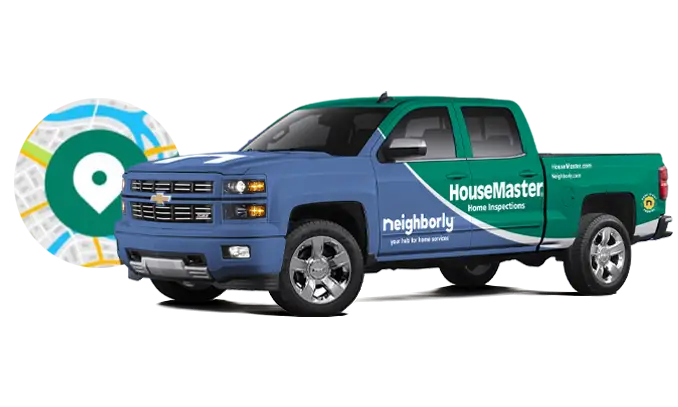As the air starts cooling down and the temperature dips with fall, shelter and warmth are sought, not only by humans. Rodents, insects, and spiders can be some of the unwelcome visitors this fall as these pests attempt to make their ways into homes in preparation for seasons to come. Such pests aim to avoid colder weather and may end up turning your home into a shelter without your knowing.
Let’s discuss some of the most common fall pests, how they invade homes, and how a thorough home inspection can help identify potential entry points and existing infestations before they become a bigger problem.
Common Fall Pests
During the fall, several pests actively seek shelter indoors. Let’s take a look at some of the most common culprits.
Rodents (Mice and Rats)
As temperatures drop, mice and rats are quick to find ways inside your home. These rodents can squeeze through small cracks and holes, making their nests in your attic, basement, or walls. Once inside, they can cause significant damage by chewing through electrical wiring, insulation, and food supplies.
Spiders
Cooler weather often drives spiders indoors. While most house spiders are harmless, they can quickly build webs in corners, basements, and crawl spaces. Some species, such as the brown recluse or black widow, can pose health risks if they bite.
Stink Bugs and Boxelder Bugs
Both stink bugs and boxelder bugs become more noticeable in the fall, as they gather around windows, doors, and attics to find warmth. While they don't cause significant damage, they can be a nuisance and emit unpleasant odors.
Ants and Cockroaches
These pests often make their way indoors during the fall, searching for food and water. Ants can quickly form colonies inside walls or under floors, while cockroaches carry bacteria and can trigger allergies and asthma.
How a Home Inspection Can Identify Entry Points
Many homeowners don’t realize how easy it is for pests to enter their homes. A professional home inspection can help identify vulnerable areas and prevent pests from making your home their own.
Exterior Openings
One of the first things home inspectors look for are gaps or cracks in the foundation, walls, or around doors and windows. Even the smallest opening can provide an entry point for rodents and insects. Caulking and sealing these gaps can prevent pests from getting in.
Roof and Attic Inspection
Inspecting the roof and attic is critical for identifying entry points. Loose shingles, damaged vents, and poorly sealed eaves can all serve as gateways for pests. Rodents are particularly skilled at climbing and accessing homes through roofs.
Basement and Crawl Spaces
Home inspectors also check basements and crawl spaces for cracks, gaps, and areas with poor insulation that pests can use to get inside. These spaces are prime spots for moisture accumulation, which can attract insects and rodents.
Identifying Existing Infestations
Beyond finding potential entry points, a thorough home inspection can also reveal if you already have an infestation on your hands. Here are some signs your local home inspectors look for.
Signs of Pest Activity
Home inspectors look for telltale signs of pest activity such as droppings, nests, gnaw marks, or tracks in basements, attics, and walls. Rodents leave obvious signs like chewed wires or food packaging, while insects may leave behind egg sacs or trails.
Moisture Detection
Many pests are drawn to moisture. Home inspectors use moisture detection tools to identify areas in the home where excess moisture exists, such as leaky pipes or damp basements. These areas can be breeding grounds for pests like ants, cockroaches, and spiders.
Structural Damage
Inspectors also check for damage caused by pests, including gnawed wood, chewed insulation, or damaged electrical wiring. Rodents are notorious for causing fire hazards by chewing through electrical lines, and termites can weaken the structure of the home if left unchecked.
Preventive Measures After an Inspection
After a home inspection, you can take preventive measures to safeguard your home from pests. Here are a few tips.
Sealing Entry Points
Once the home inspection identifies cracks, gaps, or other openings, sealing these areas is crucial. Caulk around windows, repair any damage to the foundation, and close gaps in doors and walls to keep pests out.
Pest Prevention Strategies
Simple strategies like keeping food stored properly, regularly decluttering your home, and ensuring proper drainage to avoid standing water can go a long way in preventing pest infestations. Additionally, making sure firewood or debris piles are stored away from the house will reduce the likelihood of rodents and insects seeking shelter in your home.
Regular Home Inspections
Scheduling regular home inspections is one of the most effective ways to prevent pest infestations. Home inspectors can spot potential pest problems early, allowing you to address them before they become significant issues.
Conclusion
Fall is a prime time for pests to seek shelter in your home, but with a thorough home inspection, you can identify and address potential entry points and existing infestations before they become larger problems.
Don’t let pests disrupt your home’s comfort and safety. A comprehensive inspection from HouseMaster Harrisburg and Lebanon’s local home inspectors can give you peace of mind, ensuring your home remains pest-free through the fall and winter months.
Our home inspectors are trained to identify potential entry points and signs of infestation, keeping your home safe and pest-free. Contact us now to book your inspection!
Harrisburg home inspectors Dan Ayers and Scott Ayers, like all Housemaster home inspectors, have extensive training and certifications and are tested annually to meet the industry standards of continuing education, inspection, reporting, and customer service. As part of the oldest and most trusted nationwide home inspection business, Dan and Scott have been able to put their decade long experience in fire and water property restoration and their passion for customer service to good use in the professional home inspection process. Request an inspection today!
